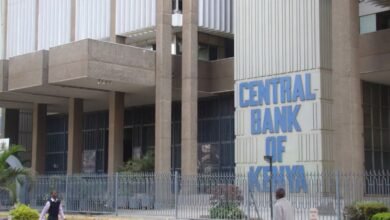
The European Union (EU) is set to launch a program that will drive the competitiveness of Kenya’s horticultural exports in the EU market.
Speaking during a virtual status meeting on the NExT initiative, the EU Deputy Head of Delegation to Kenya, Katrin Hagemann, reiterated the EU’s commitment to enhancing SPS compliance in the horticultural sector in Kenya.
”Kenya’s horticultural export trade continues to focus on Europe – made up of 27 Member States, with a population of around 506 million, the largest trading bloc in the world – and is looking to develop new destinations in Africa and beyond,” she said.
The Ksh. 650 million initiative is dubbed NExT (New Export Trade) Kenya programme. The four-year program is in collaboration with COLEACP, an association of companies and experts involved in sustainable agriculture in 50 African, Caribbean and Pacific (ACP) countries.
NExT Kenya, which was first launched in July 2020, targets value chains with a specific focus on Micro, Small and Medium Enterprises (MSMEs) and the private and public services that support the horticultural sector.
Since then, the project in collaboration with the Kenya Flower Council (KFC) and other associations offered technical training for companies in integrated pest management; the development of Good Practice Guides for avocado and peas/beans; and coaching for Kenyan flower companies to reduce interceptions of false codling moth on roses exported to Europe.
The initiative is anchored on the European Green Deal – a set of policy initiatives that seek to make Europe climate neutral by 2050 through compliance with SPS and food safety standards for countries exporting fresh produce to the European Union.
In the next four years, stakeholders will need to adapt to evolving Sanitary and Phytosanitary (SPS), commercial, social and environmental requirements on local, regional and international markets.
On his part, the Principal Secretary for Crops Development and Agricultural Research, Prof. Hamadi Boga underscored the importance of such investments in ensuring the competitiveness of Kenyan horticultural products in the global market.
NExT Kenya targets the whole value chains with a specific focus on micro, small and medium enterprises (MSMEs) and the private and public services that support the horticultural sector.
To achieve this, the programme seeks to grow capacity among agribusinesses and Business Member Organisations (BMOs) in the sector with focus on good agricultural practices, compliance with standards and market requirements, access to markets, market intelligence, access to finance, and business skills.
In addition, the programme sets to improve the capacity of the public sector especially the competent authorities to strengthen the competitiveness of the Kenyan origin.
The EU market is among Kenya’s largest export markets. In 2019, Kenya earned an estimated KSh. 142.7 billion in horticultural export earnings.





